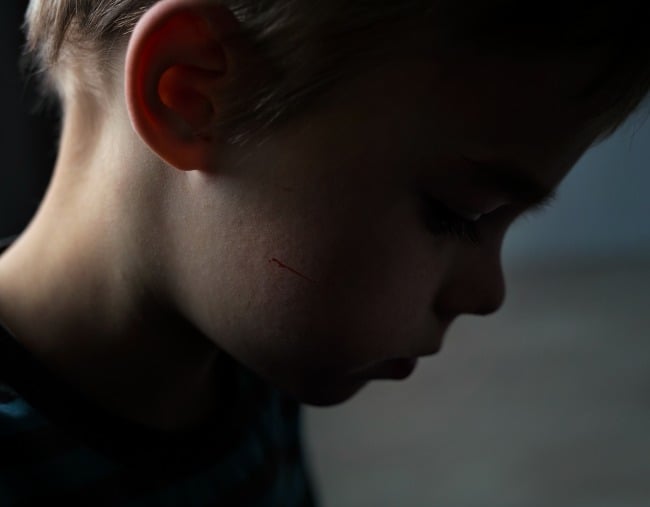
Lillyth Quillan is fearful of what lies ahead for her son. The other parents in her support group feel the same way about their children.
“We are terrified our child will grow up to seriously hurt someone,” the US mum tells Mamamia. “We are afraid we will be demonised when this happens and everyone will ask, ‘But where were the parents?!’
“In America, most of us fear our children becoming school shooters. In England, parents are afraid their children will knife someone to death. The particular kind of violence we fear may be different, but we all fear our children will grow up to hurt someone despite our years of screaming for help.”
The support group that Quillan started on Facebook four years ago is called Parents of Children with Conduct Disorder. It has around 800 members, including “quite a few” from Australia.
Conduct disorder is the diagnosis that these children have been given, but Quillan doesn’t like the term, because she doesn’t think it gets across the seriousness of the condition. She sometimes uses the expression “potential psychopath”, although she agrees it may seem very harsh at first glance.
“We’ve certainly had a few people baulk at it,” she adds. “But make no mistake. Left untreated, CD can turn into psychopathy. And that is something we should never forget.”
Quillan says most parents in the group realised there was something different about their child between the ages of two and four. Some came to the realisation during babyhood.
In Quillan’s case, her son started physically hurting her when he was less than a year old. As he grew older, he was constantly harming other children. He wasn’t invited to parties, and parents would avoid them in the park. For years, she told family, friends and doctors that she thought there was something wrong with him, but no one believed her.


Top Comments
I wonder if it could be treated - at least in part & while these children are small - with a couple of good smacks!!!
"Normal" children perhaps don't need or respond well to corporal punishment, but if these children have violent tendencies then it might be just what they need!
There’s been good research done showing that specific teaching of emotional intelligence and empathy in a therapy setting for young children displaying early psychopathic tendencies (‘callous unemotional traits’) reduces the observable traits to zero in around 75% of cases (those stats are from one piece of research and there’s additional studies out there). So teaching them ‘how to be’ not punishing them gives results - if it’s spotted and treated specifically by appropriate professionals.
I think it would make them more violent. I think they probably would respond better to counselling and one on one learning.
Because nothing teaches kids how to react aggressively or violently than smacking. One of the biggest longitudinal studies recently found this to be the case. It’s no longer acceptable to say “I was smacked as a kid and I turned out okay”. Smacking is a parenting failure, either where the parent is unaware of alternate strategies or because it seems to be the immediate and easiest solution to stop an undesirable behaviour in the short term. As a parent I can think of nothing worse than instilling fear and resentment in my child because I chose to resolve violence through violence. A bit like an eye for an eye, right?
Sure because resolving violence with violence always works.....